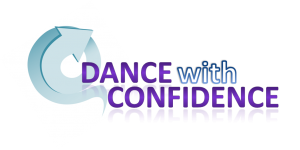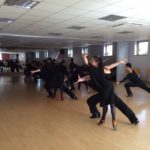
Getting to the top in dance competitions, performances and examinations requires dedicated training, drive, inspiration and passion. Successful dancers don’t just dream of success, they see it, feel it, hear it, smell and even taste it! Thinking like a winner ensures focus, energy and motivation when it really counts.
You enjoy the challenge, want to push yourself and achieve the best results. But is it possible that your current beliefs and behaviour patterns could be holding you back?
Have you spent months preparing, practising and perfecting your choreography, only to find that on the day of the competition, performance or examination:
- you haven’t slept well
- you’re stomach is full of anxiety and nervous tension
- you’re easily wound up or irritated
- your muscles are stiff
- round and round in your head, that little voice is questioning your ability, what others will think of you, parts of the routine that don’t feel right, whether you can really be successful?
Do you feel like you’re just going to explode with the stress?
When you get on the dance floor, are you worried about the floor, music, where you can position yourself? Do you have concerns about the audience – are they supportive, or could they be critical or even laugh at you? What do those judges really think?
You’re trying to tell yourself to be positive and stay calm, but it’s not working. When self doubt kicks in, do you believe it and end up performing badly, and taking the anguish and disappointment to the next dance and to the next?
HELP IS AT HAND
Negative beliefs and anxiety levels brought on by all these issues will have a considerable affect on the body’s ability to maintain relaxed muscles, stamina, movement etc, and the mind’s ability to cope and adapt to any new challenges (such as a slippery floor, wardrobe malfunction, spatial awareness).
However, if you can turn this around and think differently, in pursuit of success and positivity, the mind’s natural chemical reaction enhances your ability to think creatively and respond quickly to any eventuality.
Which do you think is better in a competition??
CONFIDENCE COACHING
The winning edge in competitive dance is effectively a psychological one; an unshakeable self-belief.
In order for dancers to maintain the ability to keep their mind and body in the optimum state, they need to control any anxiety (threat) levels and potential for negativity on the lead up to the dance event and during the routines themselves.
Following research and “excellence modelling” of exceptional and successful championship winning dancers (in association with JJ Dance Studios), a number of coaching packages (combining some of the latest psychological tools) have been developed to help today’s dancers improve their self-esteem and confidence for competitions, performances and examinations.
NLP (Neuro-Linguistic Programming) & Time Line Therapy™ are techniques which, at their core, are studies of what makes successful people successful. They bring about results by working with our natural patterns of thinking, using our memories and imagination, and identifying the strategies we use to relate to others and make sense of the world around us. By working with a combination of techniques, which all value the importance of maintaining your own individual uniqueness, you will learn how to control your specific anxiety and fears and significantly improve your self confidence levels.
Areas covered can include:
- Overcoming anxiety and fears
- Relating to the audience
- Eliciting positive states such as calm/relaxation, excitement, confidence
- Self confidence and self-esteem boosters
- Negative beliefs and limiting decisions
- Anchoring positivity
Here’s an example of how you impact others when you dance. When you’re talking to a friend who is really anxious, worried or panicky, how do you feel when you’re with them – anxious and worried for them? When you’re around someone excited, happy and raring to go – do you feel that with them? The same applies to your audience – if you’re anxious, your audience will feel it too; if you’re excited and can’t wait to dance for them, they’re going to feel that energy and really want to support you.
Let’s swap the feelings of anxiety for excitement!
There are more testimonials on the DWC website HERE
“Thank you so much for our coaching sessions. I have so much more confidence now – we just went out and really enjoyed our competition and did exceptionally well. My teacher told me that he’d never seen me dancing so confidently, and now that I’ve mastered the confidence we can really start to make the most of my presentation skills. I know how to control the nerves, and really smile – judges seem to notice, my fellow dancers seem to notice. And my confidence levels seem to be benefiting my normal life as well, as I’ve had the added bonus of attracting lots of compliments!” – C, Dance Student
“Lucy wanted to say thank you so much for your help! Lucy and I found the session really useful. Lucy was really positive and excited after speaking to you. I saw a massive improvement in Lucy’s attitude over the last couple of weekends, after she used your techniques. She was still nervous but she managed her nerves. Lucy had a fantastic competition, she got 3 firsts, a second and a third. What I thought was really good, was that you adapted your style to explain the techniques to Lucy. Thank you very much, it made the festival far more enjoyable for me as well.” – Kirstin Brown, mum to Lucy (aged 10)
“OMG, thank you, thank you, thank you! I find that I am more confident and more sure of myself and my dancing. I feel more comfortable in my dance classes. We actually had a show last week and I was super confident and had a ton of fun. Your tips are helping a million! I feel so positive that I just might audition for the junior company when next they have auditions. Wish me luck!” – Kai, Dance Student
In August 2016, Karen provided a “Competition Mind” workshop at the Ballroom Dancers Federation Amateur Latin elite training camp at JJ Dance Studios, with some of England’s finest young dancers.
.
COACHING PACKAGES
INDIVIDUAL 1-2-1 COACHING
- 1 hour initial consultation to discover the specific concerns, followed by up to 3 hours intensive coaching session
- Additional 1 hour coaching sessions, or packages of 6 x 1 hour available thereafter.
PARTNERSHIPS
Given the close relationship needed between dance partners, both mentally and physically, there are major benefits from understanding how each other is motivated, makes decisions, takes in information and can control anxiety. This builds a strong team, capable of powerful insight and assistance to each other, both before and during the
dance.
- 1.5 hour initial consultation is required to establish any individual needs as well as those of the partnership, following by up to 4 hours intensive coaching session.
- Additional 1 hour coaching sessions, or packages of 6 x 1 hour available thereafter
GETTING STARTED
Whatever you want to improve upon, let’s start now. The number and duration of coaching sessions will be designed around your specific needs and confirmed within the first initial consultation.
Please use the Contact Form to arrange a time for an initial discussion or answer any queries.

“At 65 years of age I found myself involved in the swing dance scene, which has a culture of dancing with as many different partners as possible in an evening instead of just your significant other. I was very reluctant to do this because I felt unhappy offering my deformed left hand to a follower as an invitation to dance. As a consequence, I was missing out on opportunities to practice and improve, I felt constantly under pressure to go over and ask someone to dance and I was not really enjoying dancing. Before contacting Karen I had made some changes to my dancing, such as using a lot more right-hand leads which had improved my overall confidence, but….. I still couldn’t do it! During our coaching session on Skype we explored some of the reasons for my reluctance to ask women to dance and why I did not have the confidence to do it. This unearthed a 50 year old incident when a teenage young woman refused to hold my hand in the middle of a “folk” dance. I had not actually thought about this incident for many years, but it is apparent that it had a significant and lasting effect on my teenage self. Karen went on to show me how to think about that incident and to prevent it impacting on my enjoyment of dancing today. Within days of our coaching session my wife and I went to a social dance and I felt confident enough to ask several followers to dance and two weeks later at another dance my wife complained that she couldn’t find me to dance with her because I was already on the dance floor! Thank you for finding that last piece of the jigsaw and putting it in place for me. Now I can look forward to fully enjoying the swing dance scene.” ADM, still dancing.


